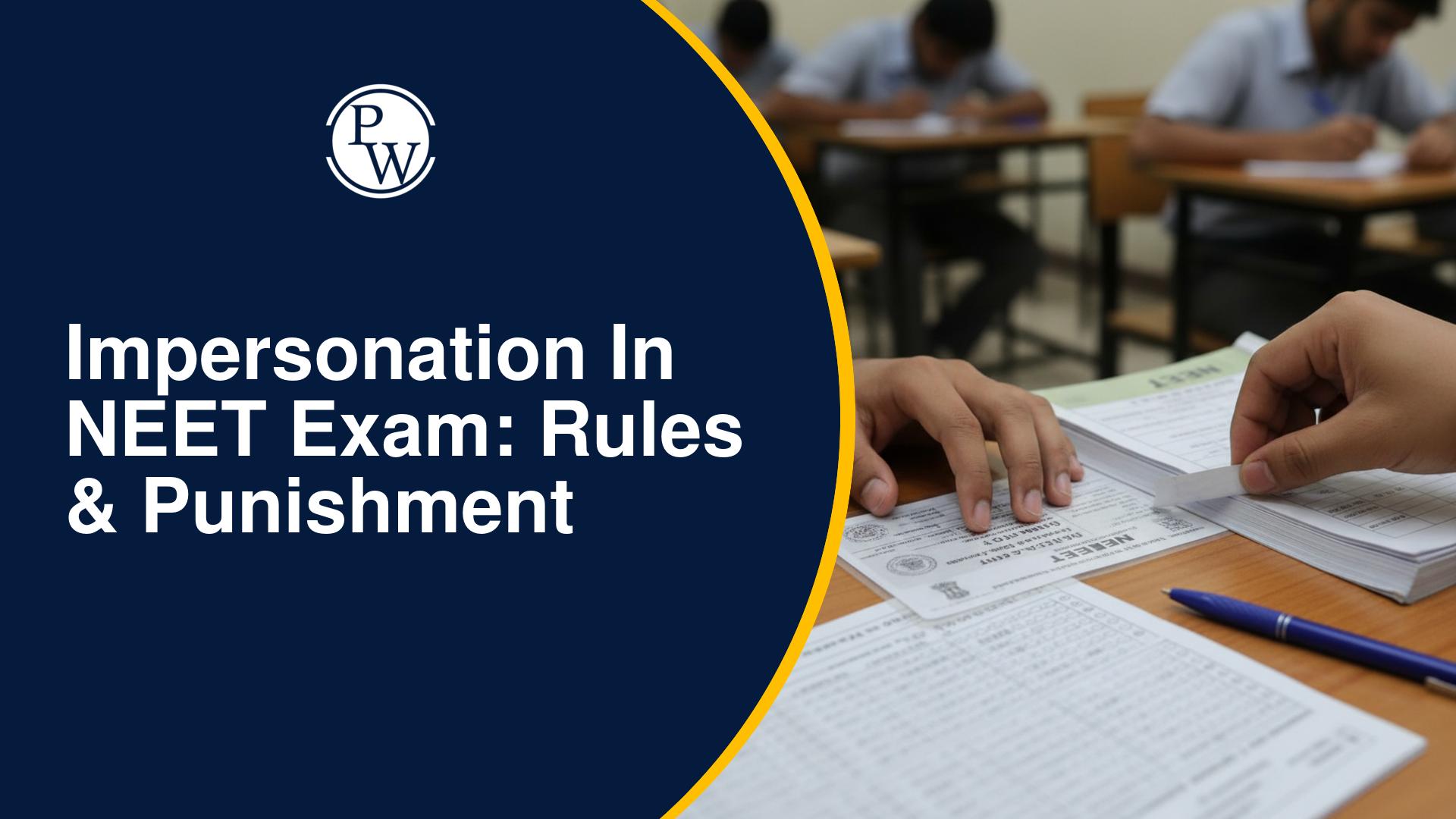
T Lymphocytes: The human immune system is the body's defence mechanism against infections. It consists of various types of cells, including T cells. The complex interactions between these cell types allow the body to respond quickly to foreign or abnormal particles. Furthermore, the immune system keeps track of every pathogen it encounters to recognize and combat future infections.
T cells, also known as T lymphocytes or thymocytes, are a specific type of white blood cell. They come in several varieties, each with specialized functions, but their primary role is to protect the body from infections and cancer. The "T" in T cells refers to the thymus, the organ where T cells develop and mature. Below are the NEET biology notes on T lymphocytes.T Lymphocytes Definition
T cells are a type of leukocyte, or white blood cell, essential for the immune system. They are one of the two main types of lymphocytes, the other being B cells, and they play a key role in identifying and responding to foreign substances, known as antigens, in the body. T cells originate in the bone marrow and mature in the thymus. In the thymus, they multiply and develop into different types: helper T cells, regulatory T cells, cytotoxic T cells, or memory T cells. After this maturation process, T cells move to peripheral tissues or circulate in the blood and lymphatic system. When they encounter the appropriate antigen, helper T cells release cytokines, which are chemical signals that promote the transformation of B cells into plasma cells that produce antibodies. Regulatory T cells help control and regulate immune responses. Cytotoxic T cells, activated by various cytokines, bind to and destroy infected cells and cancer cells.T Lymphocytes Types
T lymphocytes, or T cells, are essential components of the adaptive immune system. They are in charge of cell-mediated immunity, which involves identifying and eliminating infected and cancerous cells. There are several distinct types of T cells, each with its own specific function:Sexual Reproduction in Flowering Plants
Cytotoxic T cells (CD8+ T cells)
These cells act as the immune system's soldiers, destroying infected and cancerous cells. They recognize and attach to antigens (foreign molecules) displayed on the surface of infected cells by MHC class I molecules. MHC stands for Major Histocompatibility Complex, which helps the immune system distinguish between "self" and "non-self." Once bound, cytotoxic T cells release perforins and granzymes, which puncture the infected cell membrane and cause cell death.Helper T cells (CD4+ T cells)
These cells function as the generals of the immune system, coordinating the immune response. They do not directly kill infected cells but help other immune cells respond to infection by releasing cytokines, which are chemical signals that activate other immune cells like B cells (which produce antibodies) and macrophages (which engulf and destroy pathogens). Helper T cells also help to activate cytotoxic T cells. There are different subtypes of helper T cells, each with specialized functions depending on the cytokines they release:- Th1 cells activate macrophages and cytotoxic T cells, thereby promoting cell-mediated immunity.
- Th2 cells promote humoral immunity by stimulating B cells, which make antibodies.
- Th17 cells: Help fight bacteria and fungi and are involved in inflammatory responses.
- Tfh cells: Aid B cells in maturing into antibody-producing plasma cells.
- Th9 cells: Involved in immunity against parasites and allergic inflammation.
| NEET Biology Notes | |||
|---|---|---|---|
| Embryo | Funaria | Selaginella | Malvaceae |
| Polyembryony | Apomixis | Pinus | Pollen Grains |
| Chara | Volvox | Endosperm | Equisetum |
Regulatory T cells (Tregs)
These cells act as the diplomats of the immune system, maintaining peace and preventing autoimmune diseases by suppressing the activity of other T cells, thus preventing excessive immune responses that could harm healthy tissues.Memory T cells
These cells are like the veterans of the immune system, retaining the memory of past infections. If the same pathogen is encountered again, memory T cells can rapidly mount an immune response, providing long-term immunity. The following are two main types of memory T cells:- Central memory T cells (TCM cells): Reside in lymphoid organs and can differentiate into effector T cells upon re-exposure to an antigen.
- Effector memory T cells (TEM cells): Patrol tissues and can quickly respond to an antigen.
- Natural killer T (NKT) cells: These cells share characteristics of both T cells and natural killer cells, and can kill certain types of tumor cells and antigen-presenting cells.
- Mucosal-associated invariant T (MAIT) cells: Found in the tissues lining the respiratory tract, intestines, and skin, these cells help protect these areas from infection.
- Gamma delta T (γδ T) cells: A unique type of T cell that uses a different type of T cell receptor, found in the skin and intestines, and possibly involved in immune defense at these sites.
| NEET Biology Notes | ||
|---|---|---|
| Plasma Membrane Structure | Pre-Fertilisation | Economic Importance of Algae |
| Slime moulds | hypotonic solution | Post fertilisation |
T Lymphocytes Location
T lymphocytes, also known as T cells, are important immune system components. These are a type of white blood cell that helps protect the body from disease. They are located in the following areas:- Thymus: T cells mature in the thymus in the chest behind the sternum (breastbone). The thymus produces and educates T cells, ensuring they can identify and eliminate pathogens like bacteria in the bloodstream.
- Lymph Tissue and Bloodstream: T cells move to the lymph tissue or bloodstream after maturing. In these locations, they actively participate in immune responses by directly killing infected cells (cytotoxic T cells) or coordinating the actions of other immune cells (helper T cells).
| NEET Biology Notes | |||
|---|---|---|---|
| Rhizopus | Fibrous root | Marchantia | Actinomycetes |
| Nostoc | Spirogyra | Ribosomes | Liverworts |
T Lymphocytes Activation
T lymphocytes, also known as T cells, play a critical role in the immune system by identifying and reacting to specific antigens found in virus-infected cells or cancer cells. The activation of T lymphocytes typically follows these steps:- Antigen Presentation: Antigen-presenting cells (APCs) display antigen fragments using MHC molecules.
- TCR Recognition: T cells bind to antigen-MHC complexes via T cell receptors (TCRs).
- Co-stimulation: Additional signals are needed for full T-cell activation.
- Activation and Expansion: T cells multiply and produce cytokines upon activation.
- Differentiation: T cells specialize in effector cells (e.g., cytokine producers, cytotoxic cells).
- Memory Formation: Some T cells become memory cells for long-term immunity.
T Lymphocytes Production and Maturation
T lymphocytes, commonly called T cells, are essential components of the adaptive immune system. The production and maturation processes of T lymphocytes are as follows:1. Origins and Migration:
- Hematopoietic stem cells in the bone marrow give rise to T cells.
- These immature T cells then migrate to the thymus gland for further development.
- They are called "thymus-dependent (T) cells" because their maturation depends on the thymus.
- In the thymus, immature T cells, known as thymocytes, undergo a rigorous selection process.
- Positive selection ensures that only T cells capable of binding to major histocompatibility complex (MHC) molecules survive.
- Negative selection removes T cells that bind too strongly to self-antigens, which helps prevent autoimmune responses.
- Approximately 98% of thymocytes do not survive this process, leaving about 2% to mature into functional T cells.
- The surviving T cells leave the thymus and travel to peripheral lymphoid organs.
- They become activated when they encounter specific antigens and differentiate into effector T cells.
- As individuals age, the thymus shrinks, resulting in the production of fewer naive T cells.
T Lymphocytes Functions
T lymphocytes, also known as T cells, are an essential part of the adaptive immune system, responsible for combating specific pathogens and preventing diseases. These white blood cells mature in the thymus gland and have several important functions:- Direct Killing of Infected and Cancerous Cells: Cytotoxic T cells, or killer T cells, identify and destroy cells infected by viruses or bacteria by releasing chemicals that induce cell death.
- Support for Antibody Production: Helper T cells assist B cells, another type of lymphocyte, in producing antibodies. These antibodies bind to specific pathogens and help remove them from the body.
- Regulating Immune Response: Regulatory T cells help maintain the immune system's balance, preventing it from attacking healthy tissues.
- Memory Function: Memory T cells remember past infections, enabling the immune system to respond more quickly and effectively to previously encountered pathogens.
Difference Between T Lymphocytes and B Lymphocytes
T lymphocytes and B lymphocytes, commonly referred to as T cells and B cells, are crucial elements of the adaptive immune system, which protects the body against specific pathogens and toxins. Though they work collaboratively to combat infections, they perform different roles. Maturation- B cells: Develop in the bone marrow.
- T cells: Develop in the thymus, a lymphoid organ located in the upper chest.
- Helper T cells stimulate other immune cells, including B cells and cytotoxic T cells.
- Cytotoxic T cells: Destroy infected cells and cancer cells.
- Regulatory T cells: Suppress the immune response to prevent autoimmune diseases.
| NEET Exam Important Links | |
|---|---|
| NEET Syllabus | NEET Biology Diagrams |
| NEET Biology MCQ | NEET Biology Chapter wise Weightage |
| NEET Biology Notes | NEET Previous Year Question papers |
T Lymphocytes FAQs
Q 1. What is the function of T lymphocytes?
Ans. T lymphocytes, or T cells, are a diverse group of white blood cells crucial to the immune system. They undergo selection processes in the thymus gland to ensure their effectiveness. T cells play a critical role in active immunity by mediating cell-based immune responses and supporting humoral immunity to some extent.
Q 2. What are T and B lymphocytes?
Ans. T lymphocytes, known as T cells, can eliminate infected or cancerous cells and coordinate immune responses by aiding B lymphocytes. B lymphocytes, or B cells, produce antibodies, proteins that fight invaders like bacteria and viruses.
Q 3. What is a T cell in white blood cells (WBC)?
Ans. T cells are a type of lymphocyte, a subset of white blood cells integral to the immune system's function. They help defend the body against diseases and harmful substances such as viruses and bacteria.
Q 4. What is the full form of CD4?
Ans. CD4 stands for Clusters of Differentiation 4, which are glycoproteins found on the surface of certain immune cells including T helper cells, monocytes, macrophages, and dendritic cells.
Q 5. What is the role of B lymphocytes?
Ans. B lymphocytes, also called B cells, protect the body from infections by producing antibodies, which are specialized proteins. These cells are a type of white blood cell known as lymphocytes.
🔥 Trending Blogs
Talk to a counsellorHave doubts? Our support team will be happy to assist you!

Check out these Related Articles
Free Learning Resources
PW Books
Notes (Class 10-12)
PW Study Materials
Notes (Class 6-9)
Ncert Solutions
Govt Exams
Class 6th to 12th Online Courses
Govt Job Exams Courses
UPSC Coaching
Defence Exam Coaching
Gate Exam Coaching
Other Exams
Know about Physics Wallah
Physics Wallah is an Indian edtech platform that provides accessible & comprehensive learning experiences to students from Class 6th to postgraduate level. We also provide extensive NCERT solutions, sample paper, NEET, JEE Mains, BITSAT previous year papers & more such resources to students. Physics Wallah also caters to over 3.5 million registered students and over 78 lakh+ Youtube subscribers with 4.8 rating on its app.
We Stand Out because
We provide students with intensive courses with India’s qualified & experienced faculties & mentors. PW strives to make the learning experience comprehensive and accessible for students of all sections of society. We believe in empowering every single student who couldn't dream of a good career in engineering and medical field earlier.
Our Key Focus Areas
Physics Wallah's main focus is to make the learning experience as economical as possible for all students. With our affordable courses like Lakshya, Udaan and Arjuna and many others, we have been able to provide a platform for lakhs of aspirants. From providing Chemistry, Maths, Physics formula to giving e-books of eminent authors like RD Sharma, RS Aggarwal and Lakhmir Singh, PW focuses on every single student's need for preparation.
What Makes Us Different
Physics Wallah strives to develop a comprehensive pedagogical structure for students, where they get a state-of-the-art learning experience with study material and resources. Apart from catering students preparing for JEE Mains and NEET, PW also provides study material for each state board like Uttar Pradesh, Bihar, and others
Copyright © 2026 Physicswallah Limited All rights reserved.









